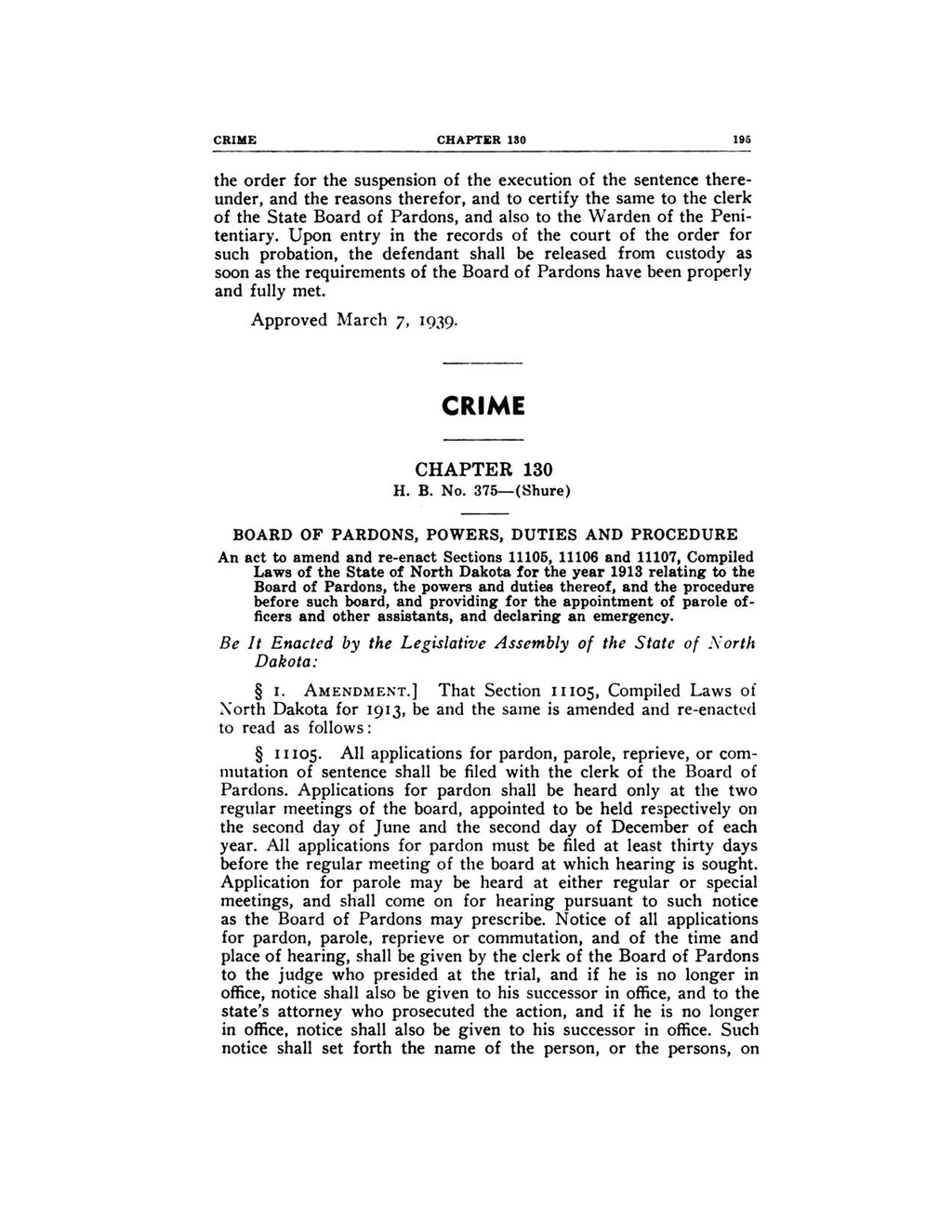the order for the suspension of the execution of the sentence thereunder, and the reasons therefor, and to certify the same to the clerk of the State Board of Pardons, and also to the Warden of the Penitentiary. Upon entry in the records of the court of the order for such probation, the defendant shall be released from custody as soon as the requirements of the Board of Pardons have been properly and fully met
Approved March 7, 1939.
CRIME
CHAPTER 130
H. B. No. 375—(Shure)
BOARD OF PARDONS, POWERS, DUTIES AND PROCEDURE
An act to amend and re-enact Sections 11105, 11106 and 11107, Compiled Laws of the State of North Dakota for the year 1913 relating to the Board of Pardons, the powers and duties thereof, and the procedure before such board, and providing for the appointment of parole officers and other assistants, and declaring an emergency.
Be It Enacted by the Legislative Assembly of the State of North Dakota:
§ 1. Amendment.] That Section 11105, Compiled Laws of North Dakota for 1913, be and the same is amended and re-enacted to read as follows:
§ 11105. All applications for pardon, parole, reprieve, or commutation of sentence shall be filed with the clerk of the Board of Pardons. Applications for pardon shall be heard only at the two regular meetings of the board, appointed to be held respectively on the second day of June and the second day of December of each year. All applications for pardon must be filed at least thirty days before the regular meeting of the board at which hearing is sought. Application for parole may be heard at either regular or special meetings, and shall come on for hearing pursuant to such notice as the Board of Pardons may prescribe. Notice of all applications for pardon, parole, reprieve or commutation, and of the time and place of hearing, shall be given by the clerk of the Board of Pardons to the judge who presided at the trial, and if he is no longer in office, notice shall also be given to his successor in office, and to the state's attorney who prosecuted the action, and if he is no longer in office, notice shall also be given to his successor in office. Such notice shall set forth the name of the person, or the persons, on
